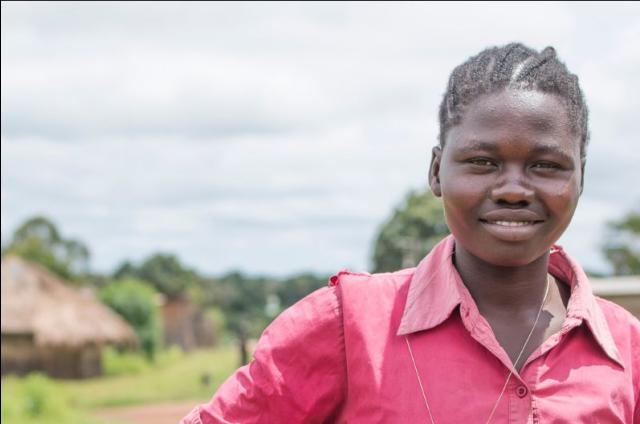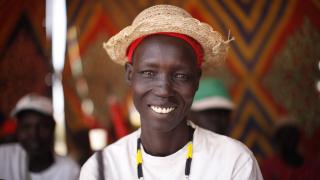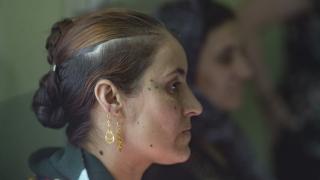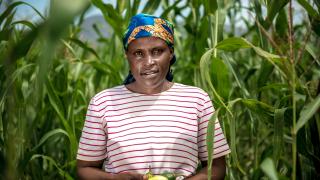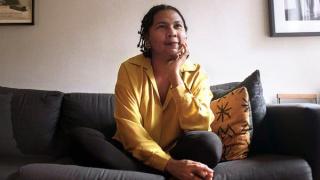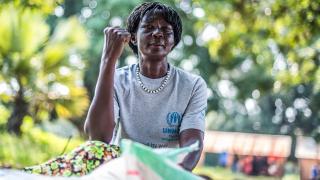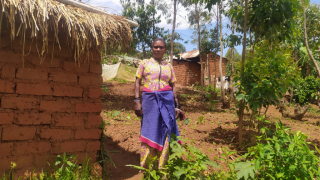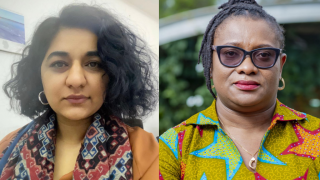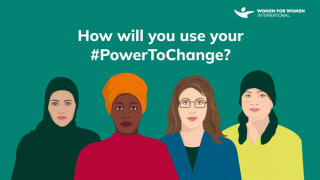From Conflict to Collaboration: A Couple's Transformation
From Conflict to Collaboration: A Couple's Transformation
The journey of two graduates of our programme, Mawa and Jackline, finding peace through our programme
Mawa and Jackline have been married for six years. They live in Wuluturu, Yei River County, South Sudan, with their two children. Their marriage was on the brink of collapse when they were enrolled in our Couples Connect Pilot Programme.
Today, Mawa shares that they now live together in harmony. Here is his story.
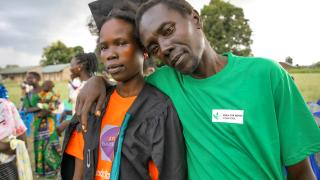
In my culture, being a man means being the head of the family. This title comes with responsibilities but also a lot of privileges.
As the head of my household, I was raised to be the sole provider and decision-maker. Everything I said or did was final. My wife wasn’t supposed to seek financial independence or earn a living; she was meant to stay home and take care of the family.
This belief shaped my expectations when I got married.
To my surprise and frustration, my wife was not the obedient woman I expected. She had a mind of her own and wanted to contribute financially. She would buy things for our home without my input, prepare meals with money I hadn’t given her, and even engage in small businesses and casual labour to make her own money. This independence didn't sit well with me. I was suspicious - where did she get the money? Why was she always away from home? Was she trying to compete with me or, worse, undermine my authority?
My suspicions turned to anger. I verbally insulted her and sometimes became violent. I threw away food she prepared with her own money and restricted her movements.
Our home became a battleground, and we became enemies living under the same roof.
One morning, my wife suggested we join the Couples Connect Programme with Women for Women International.
Initially, I was hesitant. But she mentioned that we might receive financial support if we attended together. Reluctantly, I agreed, motivated only by the prospect of money.
As we participated in the programme, something remarkable happened. We learned about teamwork, sharing responsibilities, effective communication, problem-solving and financial management.
Slowly, I began to understand and appreciate my wife’s efforts.
We started talking again, discussing business, farming and our children. I began supporting her business and we started working together. By the end of the programme, we received some capital, which we invested in her business.
Today, our lives are transformed. I can relax a little, knowing that I don’t have to shoulder every burden alone.
We are a team.
Recently, I developed an illness that affects my ability to walk or stand, making it difficult for me to work. My wife has become the primary breadwinner, contributing up to 70% of our family’s income. I now support her as best I can.
I am grateful to Women for Women International for this life-changing programme and for giving me another chance at love.
I am also grateful to my wife for being strong and persistent.
Without her, I don’t know how I would manage in my current condition.
To all women, I encourage you to support your husbands and not give up on your families. And to the men, I hope you learn from my experience: support your wives, and if you can’t support them, at least don’t stand in their way.
keep reading
As millions in Ukraine are forced to flee their homes, we must not forget about people in countries such as Afghanistan, South Sudan and Iraq who are also dealing with the effects of the war. Read about how the war in Ukraine is contributing to global hunger and leaving millions on the brink of starvation.
Have you ever been inspired to fundraise for Women for Women International, but felt daunted by the prospect of having to raise the funds? You're not alone.
Globally, femicide is the leading cause of premature deaths of women. Audrey Mugeni, a member of our global Women for Women International global team, shares her expertise on the issue - which affects women in conflict and fragile states more than anywhere else in the world.
Iliriana Jaka Gashi, Director of Kosova – Women 4 Women, spoke to Gazeta Infokus about our work supporting women in Kosovo.
Following the UK Government's inquiry into extreme poverty, we set out the challenges the Government face to ensure their approach to extreme poverty meets the needs of marginalised women living in conflict-affected countries.
In honour of Women‘s History Month, we’re putting the spotlight on five iconic BIPOC women game-changers in history, and how we can carry on their legacy.
Today is International Women’s Day. It is 2022 and not a single country has achieved gender equality according to UN Women. Read what Women for Women International - UK's Managing Director, Sara Bowcutt, has to say on the matter.
INVEST IN THE POWER OF WOMEN THIS MARCH
subtitle:
This Women’s History Month, harness your #PowerToChange by investing in these values-led brands and help to change the world, one woman at a time. From fashion to homeware to food, we are proud to work with partners that reflect the skills learnt by women in our programmes.
This International Women's Day, here are six ways you can harness your #PowerToChange to improve the world for women everywhere.
In the Democratic Republic of Congo, restrictive gender norms make it difficult for women to purchase land in their own name. Read Gorette, Furaha and Gentille's stories - three of our programme graduates who have defied the odds and now help other women to do the same.
Meet Chro and Buki
subtitle:
Women have the #PowerToChange the world. We see it happen all the time. In the face of inequality and conflict, women make small, positive changes which in time have a lasting impact on their families, on their communities and on society as a whole. Meet Buki and Chro, two members of our global team who are using their power to create a ripple effect of change.
On International Women’s Day 2022, we want to elevate the voices of the changemakers in the countries we work. These are women who are demonstrating their #PowerToChange social norms and are committed to creating a ripple effect for generations to come. Meet Khalida, Latifa and Zainab - women in our global team who have shared their inspiration, changes they've seen, and their hopes for the future.

